Explore the ScaleUp Annual Review 2020
Select a section to expand and explore this year's review..
CONTENTS

Introduction 2020

Chapter 1 2020
The Scaleup business landscape

Chapter 2 2020
Leading Programmes Breaking Down the Barriers for Scaleups

Chapter 3 2020
The local scaleup ecosystem

Chapter 4 2020
Shaping policy to foster UK scaleups: Breaking down barriers

Chapter 5 2020
Looking Forward

Scaleup Stories 2020

Annexes 2020
Programme
Amadeus Capital Partners [Annual Review 2020]


Finance and Risk Capital
Impact for scaleups

42
Companies backed

39%
Follow-on investments

55%
Investments outside of London

9
Growth-stage investments
Amadeus Capital Partners is a global technology investor that invests in companies requiring early investment and growth capital with global potential. It was a new entry into the 2019 ScaleUp Index’s list of top investors in visible scaleups.
The firm follows three investment strategies: providing seed, start-up and scaleup capital for early stage companies with exceptional IP based in, or growing from the UK; primary and secondary investments in high-growth technology companies; and growth capital investments in tech-enabled consumer and business services in emerging markets. Its areas of focus cover AI & machine learning, online consumer services, cyber security, digital health and medical technology, digital media, enterprise SaaS, fintech, regtech and insurtech.
Since 1997, when the firm was founded, it has backed more than 150 companies and raised over $1bn for investment. It has offices in Cambridge, London, San Francisco and Cape Town. It is a partner with the British Business Bank on the Enterprise Capital Fund programme.Notable scaleups in their current portfolio include Graphcore, FiveAI, Ravelin, Improbable, Speechmatics and Congenica. Amadeus-backed Fluidic Analytics has developed a machine that could help speed up the search for treatments for COVID-19.
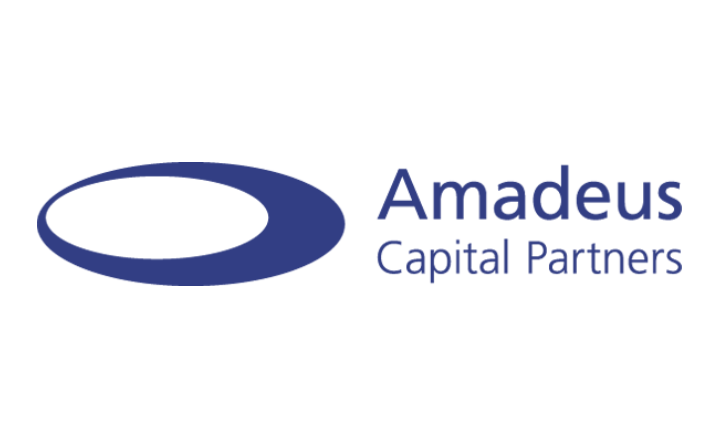
Programme
Envestors [Annual Review 2020]


Finance and Risk Capital
Impact for scaleups

94
Companies backed

26%
Follow-on investments

54%
Investments outside of London

15
Growth-stage investments
Envestors is a fintech company that connects investors and scaleup businesses. It was a new entry into the 2019 ScaleUp Index’s list of top investors in visible scaleups.
Established in 2004, it is an FCA regulated finance adviser in the UK, operating an international network of investors investing an average of £42,000 in high-growth unquoted companies seeking £250,000 to £2m in equity funding. Its private network offers screened opportunities to angel investors. Envestors also executes £2m-£3m deals per year through family offices in growth companies with turnover in excess of £5m. To date, Envestors has invested more than £100m in over 200 companies, many of which have been through several rounds.
Envestors has contributed to 12 investments in six visible scaleup companies since 2010, worth a total of £76.1m. Of the 12 investments, six were repeat investments into two scaleups and four of the cohort have exited since receiving further follow on investment. Notable scaleups that have been supported by Envestors are Ebury and Chargemaster.
Its Envestry for Scaleups provides a Software as a Service (SaaS) platform which can be used to automate the application process for businesses seeking support, showcase investment opportunities to investors in a secure area and allow its investors to track opportunities and manage their portfolio.
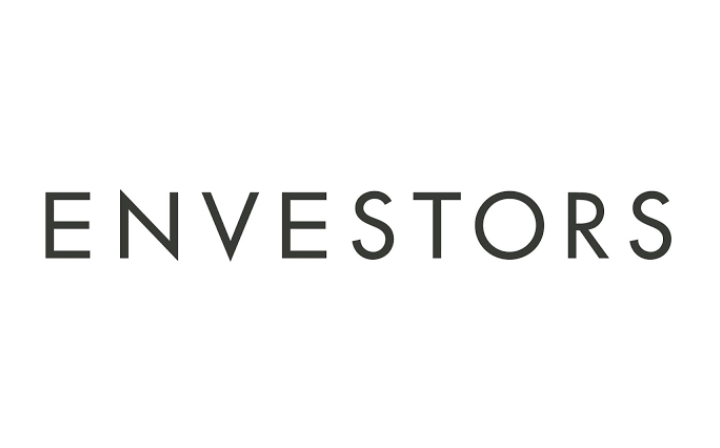
Programme
Seedrs [Annual Review 2020]


Finance and Risk Capital
Impact for scaleups

562
Companies backed

43%
Follow-on investments

38%
Investments outside of London

31
Growth-stage investments
Online equity crowdfunding platforms, on which businesses pitch to receive investment, are becoming a conduit for finance among seed, early-stage and scaling businesses, bridging the gap from family and friends funding rounds and later, larger institutional rounds.
Seedrs, founded in 2012, was a new entry into the 2019 ScaleUp Index’s list of top investors in visible scaleups. It operates a pan-European equity crowdfunding platform with its headquarters in London and hubs in Berlin, Amsterdam and Lisbon. Funding ranges from £50,000 seed stage rounds through to IPO.
The platform has contributed to 33 investments in 11 scaleup companies since 2013, worth a total of £76.7m. Of the 33 investments, 22 were repeat investments into seven scaleups and two of the cohort has exited since receiving investment. In 2020, the platform has provided more than £1m in growth finance to companies such as Urban, Assetz Capital and TruRating. Notable scaleups that have used the platform include Landbay, PodPoint and Velorution.
Its Alumni Club also serves Seedrs-funded businesses through a dedicated community featuring valuable tools, bespoke resources, curated events, discounts and an online community portal.In October 2020, it was announced that Seedrs and Crowdcube plan to merge The deal is subject to approval from the Competition and Markets Authority, the FCA as well as shareholders.

Programme
Accel [Annual Review 2020]


Finance and Risk Capital
Impact for scaleups

30
Companies backed

49%
Follow-on investments

10%
Investments outside of London

18
Growth-stage investments
Key sectors














Accel is an early and growth-stage VC firm which invests in technology companies in the US, Europe and India. In 2020 it celebrated 20 years of its presence in Europe.
In May 2019, it announced its sixth $575m European early stage fund specifically focused on Series A and B investments in the UK, Europe and Israel. Companies in which this fund has invested include London-based scaleups Humio, Privitar, Moshi and Monzo. A notable investment has been in the online events provider Hopin, which has already received two investments in 2020 from Accel.
One of the firm’s principal categories for investment in Europe is the Software as a Service (SaaS) sector. The firm has increased its investments in European cloud technology companies five-fold in the past five years.
From January 2013 to June 2020, the fund has participated in 59 fundraisings including 29 follow-on investments. The majority of the 30 investments made by Accel since the start of 2013, have been to London-based companies with three outside London.
With offices in San Francisco, London and India, the firm uses its network to enable portfolio companies to hire senior leaders, expand into new markets, and provide introductions to new customers. Accel runs events for its portfolio to encourage the sharing of best practice. Its global SaaStock event was held remotely this year.

Programme
Balderton Capital 2019


Finance and Risk Capital
Impact for scaleups

42
Companies backed

45%
Follow-on investments

14%
Investments outside of London

30
Growth-stage investments
Key sectors














Balderton Capital focuses on Series A and B investments into European and US technology companies. In late 2019, it was cited as Europe’s most active Series A investor.
Balderton typically invests between $1-$20m into “companies with the potential to disrupt huge industries, and the ambition to scale globally.” Two-thirds of their investments in UK companies between January 2013 to June 2020 were at growth stage. A notable scaleup investment has been The Hut Group, (THG) in which the firm made five investments totalling £24.3m between 2010 to 2012, and whose IPO on the London Stock Exchange Main Market in 2020 was the UK’s largest tech IPO in the past five years.
The fund primarily invests in businesses based in the UK, US and Europe. It takes a broad sector focus on technology and the internet as a whole but does not invest in life sciences or cleantech. Investments in UK scaleups this year include KBox, smol and WageStream.
Last year the firm launched Liquidity I, a new $145m fund dedicated to buying equity stakes from early shareholders in European-founded, high growth, scaleup technology companies. At the close of 2019, it launched a $400m early-stage fund to support Series A rounds across Europe.
The firm has a “Build platform” to provide talent, marketing, finance and legal services to support companies as they scale, and to connect founders and their team to an active peer community. The firm provides guidance on talent acquisition and global expansion, as well as publishing guides on topics such as employee equity schemes and optimising board structures. Scaling portfolio companies have access to the firm’s executive council, which consists of leaders in the global technology industry.

Programme
Beringea [Annual Review 2020]


Finance and Risk Capital
Impact for scaleups

36
Companies backed

26%
Follow-on investments

33%
Investments outside of London

22
Growth-stage investments
Founded in 1988, Beringea focuses on investing in established companies, with run-rate revenues of at least £500,000, and with potential for rapid growth. The firm currently has more than 60 portfolio companies in a range of emerging sectors, including media, healthcare and life sciences, internet technologies, advanced manufacturing, clean tech and specialised consumer goods. In its last financial year (for year ending 29 February 2020) it had invested £6.8m in six new portfolio companies and £4.1m in seven existing portfolio companies.
Beringea manages more than $700m in funds in the UK and the US. In the UK, Beringea manages three VCTs, including ProVen VCT and ProVen Growth and Income VCT. It is also a co-manager of the Michigan Growth Capital Partners Funds in the USA.
The firm opened an office in Manchester in 2019 and has stated its commitment to investing in the UK regions. In 2020, the firm has been recognised for its support and promotion of women investors in the global private equity industry.
Current scaleups in its portfolio include the jewellery retailer Monica Vinader, healthcare publisher Cogora, retail and data analytics company EDITED, and social impact platform Social Value Portal.

Programme
BGF


Finance and Risk Capital
Impact for scaleups

229
Companies backed

21%
Follow-on investments

79%
Investments outside of London

98
Growth-stage investments
Key sectors














BGF describes itself as “the world’s most active growth capital investor.” Since its formation in 2011, it has backed more than 330 British and Irish companies. The investor supports a range of growing companies – early stage, growth stage and quoted – across every region and sector of the economy, and has continued to invest in one company a week on average since the Covid pandemic began in the UK in March 2020.
It makes long-term equity investments in return for a minority, non-controlling stake in the companies it backs. Initial investments are between £1m-£15m followed by significant follow-on funding.
The company has 14 offices in the UK and nearly 80 per cent of the investments are made into companies based outside of London. Scaleups that it has recently backed include Gousto (in which it has participated in five funding rounds), Moteefe, Appnovation, Streetbees and Bramble Energy.
It has a specialist internal team of more than 170 people, combined with an international network of business leaders, sector experts and non-executive directors, providing a platform and capability to support management teams’ ambitions for growth. This is reinforced by dedicated in-house support with chair and senior executive selection and appointments through its 5,000-strong Talent Network.
BGF invests off its own balance sheet, allowing it to offer flexible investment structures with a mix of equity and loan notes as appropriate. BGF can also offer equity release for existing shareholders, and funding to support domestic or international expansion strategies through
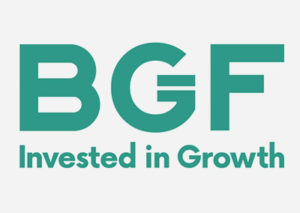
Programme
British Business Bank: Enterprise Capital Fund [Annual Review 2020]


Finance and Risk Capital
Impact for scaleups

550+
Companies backed

49%
Investment outside of London
Key sectors














The British Business Bank’s Enterprise Capital Funds (ECF) programme is a significant part of the UK venture capital industry, combining private and public money to make equity investments in high growth businesses. In 2017, the Government announced a commitment of up to £1bn to the programme over the next ten years.
The ECF programme is designed to increase the supply of equity to UK growth companies and to lower the barriers to entry for fund managers looking to operate in the venture capital market. It is working with 31 Fund partners across the UK.
Since their inception in 2006, 28 ECFs have been launched, supporting more than 550 innovative growing businesses across a range of sectors. The top five sectors supported by ECFs are SaaS, AI, industrials, e-commerce, and healthcare – 49 per cent of the investments are outside of London.
The British Business Bank invests alongside VC funds on terms that improve the outcome for private investors when those funds are successful. The ECF programme has helped 16 fund managers to raise their first institutional fund and so far 63% of these have already gone on to raise a further fund. The average size of an ECF has increased from £20m to closer to £60m during the lifetime of the programme.
From inception, the ECF programme has committed more than £1.36bn of finance, of which British Business Bank has contributed almost £795m. The bank operates a rolling investment programme for commitments to new ECFs and welcomes new applications from UK fund managers.
In June 2020, its £50m cornerstone funding in Epidarex Capital III made it the largest ECF to date and the first to specialise in life sciences.
The current fund partners include: Accelerated Digital Ventures, Active Partners, Amadeus Capital Partners, Catapult Ventures, Dawn Capital, Edge Capital, Entrepreneur First, Episode 1, Foresight Group, Imbiba, IQ Capital, Longwall Ventures, MMC Ventures, Notion Capital, Panoramic Growth Equity, Passion Capital, Pentech, Seraphim Capital, Sussex Place Ventures, VGC Partners, Epidarex, Ada Ventures.

Programme
Crowdcube [Annual Review 2020]


Finance and Risk Capital
Impact for scaleups

793
Companies backed

21%
Follow-on investments

46%
Investments outside of London

56
Growth-stage investments
Key sectors














Online equity crowdfunding platforms, on which businesses pitch to receive investment, are becoming a conduit for finance among seed, early-stage and scaling businesses, bridging the gap from family and friends funding rounds and later, larger institutional rounds. On average, investors have five businesses in their portfolio. Institutionalisation of equity-based crowdfunding continues as VC firms, professional and retail investors co-invest on the platforms. Crowdcube invests in UK companies and has offices in Exeter and London.
Crowdcube typically invests between £250,000-£1m, with funding available as equity investment or mini-bonds. There were 56 growth stage investments made into UK companies since 2013 raising a total of £224m. During the period of January 2013 to June 2020, the fund has provided follow-on investments for 211 of the 793 UK companies. Two of its most popular fundraising campaigns of all time – for what3words and Moneybox – have been held during the Covid-19 pandemic.
Notable scaleups to have used the Crowdcube platform include BrewDog (this includes two debt funding deals totaling £12.3m), Monzo (which raised £20m via crowdfunding in December 2018) and Revolut. Popular sectors include food & beverages; consumer goods; fintech; and consumer internet. Over 46% (365) of the companies raising investment are based outside of London.
The platform provides companies that raise funds via the platform with access to a help centre and a campaigns team, access to a network of founders, and support with marketing and investor relations. The company has launched a Direct Community Offer, a secondary sales product that enables later-stage businesses to provide early investors with an exit while giving new investors a chance to invest.
In October 2020, Crowdcube announced its plan to merge with Seedrs. The deal is subject to approval from the Competition and Markets Authority, the FCA as well as shareholders.

Programme
Development Bank of Wales [Annual Review 2020]


Finance and Risk Capital
The Development Bank of Wales was initially established as Finance Wales in 2001 by the Welsh Assembly Government. In October 2017, it was renamed as the Development Bank of Wales and strengthened as a national financial institution with greater scope to provide commercial funding to businesses in Wales.
It is a wholly-owned subsidiary of the Welsh Government, providing Welsh businesses with capital to start up, strengthen and grow, and directing public funds to where they can have the most impact. The bank provides loans, property loans, seed and acquisition finance and equity investments between £50,000 to £5m. In addressing the Covid pandemic, the Bank is clear that its role is “to ensure liquidity in the Welsh economy and for small businesses in particular.”
In the financial year ending 31 March 2020 the Development Bank of Wales directly invested £103m into Welsh businesses, an increase of nearly 30% over the previous year. Further private sector capital of £75.9m was invested alongside its funds.
The number of investments increased by nearly 9% from 420 to 457. Total equity investment in the year was £16m, of which £11.44m was in 51 tech ventures. Investment across the three regions was £38.7m in South Wales, £34.3m in Mid and West Wales and £30.4m in North Wales. Thirty businesses received investment in excess of £1m. Scaleups that it has supported include BookingLive and Litelok.
The Bank co-invests alongside other banks, VCs, angel investors, crowdfunding platforms and grant funders. It has a network of dedicated, local account managers. Referrals are also made to Business Wales for business advice and support. During 2018/19 the Bank established Angels Invest Wales, providing businesses access to more than 200 angel investors and syndicates through an online platform. Deals of more than £3m were facilitated in the year.
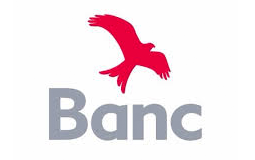
Programme
Draper Esprit [Annual Review 2020]


Finance and Risk Capital
Impact for scaleups

37
Companies backed

34%
Follow-on investment

46%
Investment outside of London

23
Growth-stage investments
Key sectors














Draper Esprit invests in seed, venture and growth-stage companies based in Europe.
The firm makes between ten to 20 new investments annually, including follow-on. Its investment approach is ‘incremental’, investing small amounts early while reserving more capital for later stage rounds. Notable scaleups which it has supported include Graphcore, Ravelin, PrimaryBid, IESO Digital Health, POD Point and PushDoctor.
Founded in 2006, the fund invests throughout Europe, with offices in London, Dublin and Cambridge. It invests in four sectors: consumer technology, enterprise technology, hardware and electronics, and digital health and wellness. Its core vision is to take a long term view on any investment and provide the capital to enable firms to reach their full potential. As a listed VC firm, it says that it is “free from five-year fund cycles;” and in October 2020 it raised £110m on the public markets: the capital will be deployed across a combination of larger investment rounds, follow-on opportunities and new dealflow, typically Series A and beyond.
The firm has a strategic partnership with Earlybird Digital West to share resources, talent, and dealflow opportunities, particularly in the German speaking market. The firm’s network of partners in Asia, the US, and the Middle East helps its portfolio companies to internationalise with commercial connections and funding. The firm says it has increased dialogue with its portfolio companies and provides operational support and advice, particularly in relation to accessing various elements of the Government’s financial assistance packages.
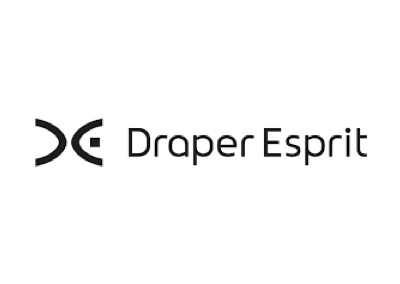
Programme
Eight Roads [Annual Review 2020]


Finance and Risk Capital
Impact for scaleups

17
Companies backed

23%
Follow-on investments

18%
Investments outside of London

14
Growth-stage investments
Key sectors














Eight Roads provides venture and growth-stage capital, investing in technology and healthcare companies that are in scaleup phase.
With its origins stretching back to 1969 as Fidelity Ventures, the firm has its head office in London with other offices in Hong Kong, Beijing, Shanghai, Mumbai, Tokyo, Hamilton, Boston and Stockholm. Eight Roads invests in companies based in Europe, US, India, Japan and China.
It has backed 17 UK companies since 2013. Out of all these investments, the majority have been into London-based companies. The average size of its investment round into UK companies since 2013 is £33.3m. Notable UK scaleups in which the firm has invested include Deliveroo, MADE and notonthehighstreet. A recent investment was made in the savings app Moneybox.
The firm says that it backs founders “with high conviction” and is selective about the number of investments it makes. Its principal investment team takes a patient capital approach which it says is appropriate for the long development times for healthcare companies, particularly in therapeutics.

Programme
Index Ventures [Annual Review 2020]


Finance and Risk Capital
Impact for scaleups

63
Companies backed

34%
Follow-on investments

14%
Investments outside of London

32
Growth-stage investments
Key sectors














Index Ventures is a multi-stage VC firm, making equity investments at seed, venture and growth stage. With its main offices in London and San Francisco, the firm focuses on life sciences, medical technology, digital media, e-commerce and software. The firm invests in companies based in the US, Europe and Israel.
Index typically invests between $100,000-$2m in seed-stage companies and up to £50m for growth-stage companies; the average size of its investment round into UK companies since 2013 is £14.2m.
Between January 2013 to June 2020, the fund has provided follow-on investments for 33 of the 63 UK companies that it has backed. Notable UK scaleups in its current portfolio include Deliveroo, Transferwise, Revolut, Moo and the fintech ComplyAdvantage.
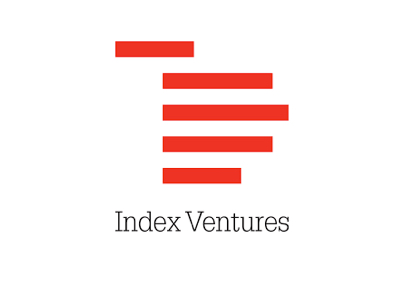
Programme
IP Group


Finance and Risk Capital
Impact for scaleups

76
Companies backed

31.5%
Follow-on investments

87%
Investments outside of London

13
Growth-stage investments
Key sectors














IP Group is an FTSE-250 listed IP commercialisation company whose funds provide venture capital to spin-out companies from its 17 university partnerships. The company also owns Parkwalk Advisors and stakes in Oxford Sciences Innovation and Cambridge Innovation Capital.
IP Group invests in spin-outs from UK universities and some US universities.Cumulatively, it has formed and supported more than 300 companies and invested £850m into UK science-based businesses. Nearly nine out of ten investments made by IP Group and its subsidiary Touchstone Innovations have been into companies outside of London.
In the period between January 2013 to June 2020, the average size of its investment round into UK companies was £8.1m. Notable UK scaleups in its portfolio include Oxford Nanopore, Inivata, Crescendo Biologics, Artios Pharma and Ieso Digital Health.
The funds invest at seed, venture and growth stages and assist companies with the commercialisation of their new products and services, with technology transfer, IP licensing and protection. The funds continue to invest in portfolio companies as they scale. The firm has a long-term partnership model with UK universities and developed an approach to supporting businesses from “cradle to maturity,” including assistance with executive search and recruitment and raising growth stage capital from co-investors.
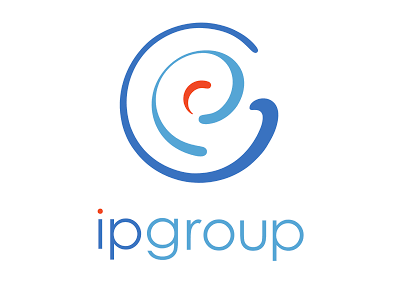
Programme
LDC


Finance and Risk Capital
Impact for scaleups

39
Companies backed

87%
Investments outside of London

14
Growth-stage investments
Key sectors














LDC is the private equity arm of Lloyds Banking Group and has been an active investor in UK companies since 1981. It backs management teams from UK-based medium sized companies seeking up to £100m of investment to fund management buyouts or development capital transactions.
LDC invests in companies who can demonstrate minimum revenues of £5m with profits of £1m and a two-year profits history. The firm invests solely in UK companies and has nine offices in the UK. Its initial investments are between £10m and £50m and the average size of its investment round into UK companies since 2013 is £16.5m. LDC has committed to invest £1.2bn through the three-year period of 2019 – 2021.
One-third of the firm’s portfolio companies are engaged in ‘buy and build’ strategies, many of which are international. Notable scaleups include Onecom Group, Rhino Products, Aspin Group and Plimsoll Productions.
Portfolio companies are provided with sector-specific guidance, access to an executive network, and peer network opportunities with other portfolio companies. A value creation team of experts is available to help identify particular pressure points and new growth opportunities, supporting management teams with projects from sales effectiveness, to digital marketing, procurement and operations.
In addition, LDC’s “Backing Youth Ambition” partnership with The Prince’s Trust aims to support over 1,200 young entrepreneurs across the UK over the next three years. It publishes an annual list of the 50 most ambitious business leaders.
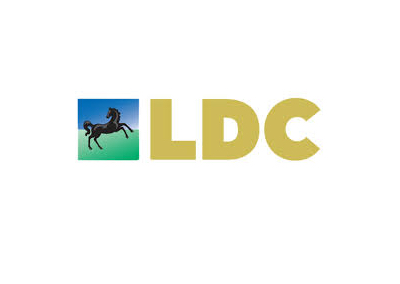
Programme
Livingbridge [Annual Review 2020]


Finance and Risk Capital
Impact for scaleups

22
Companies backed

12%
Follow-on investments

64%
Investments outside of London

13
Growth-stage investments
Livingbridge is a private equity firm that has been investing in four sectors – healthcare and education, services, consumer and TMT – for more than 20 years, making more than 100 investments.
It typically makes investments between £5m to £100m, taking a flexible approach – it will provide growth capital, as well as funding management buy-outs and secondary buy-outs and replacement capital deals. It invests in businesses with an enterprise value up to £50m through its Enterprise Fund, and in those with an enterprise value up to £200m through its Mid Market Fund. The average size of its investment round into UK companies since 2013 is £9.61m, and it will take stakes ranging from five to 80%. Scaleups in its portfolio include Southern Communications, Nigel Frank International, Happy Days Nurseries, Optomany and Carousel Logistics.
The firm has offices in London, Birmingham and Manchester and an Australian office in Melbourne to make primary investments in the UK, Australia and New Zealand. It has an office in Boston to support expansion and M&A in the US.
To support the growth strategies of its portfolio companies, Livingbridge has developed its “growth accelerators,” which it describes as “core value creation capabilities designed to unlock a business’s potential.” Its in-house growth acceleration team is made up of market experts principally covering international growth, corporate development, customer acquisition and retention, talent and technology. Its managing partner, Wol Kolade, is a founder of The 10,000 Black Interns programme, which will offer paid work experience across a wide range of sectors, providing training and development opportunities and creating a sustainable cycle of mentorship and sponsorship for the Black community.
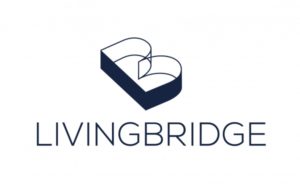
Programme
Notion [Annual Review 2020]


Finance and Risk Capital
Impact for scaleups

33
Companies backed

52%
Follow-on investments

33%
Investments outside of London

15
Growth-stage investments
Key sectors














Notion specialises in making seed and Series A investments and has an $80m growth fund to provide later-stage follow-on capital for portfolio companies. The fund invests exclusively in the European enterprise tech and B2B SaaS sectors. Notion is located in London and invests across Europe, with the majority of its portfolio being UK-based.
The firm typically invests between $3m-$5m. Notable scaleups include Topia, FiveAI, Go Cardless and Currency Cloud. The average size of its investment round into UK companies since 2013 is £8.75m.
Over the past four years, the firm has conducted an annual Net Promoter Score survey to gather feedback from founders and CEOs in the portfolio – as a consequence of the last survey, the firm is focusing its efforts on building up its relationships with international VCs, particularly those in the US, to support the expansion strategies of its portfolio companies.
Notion has pioneered the launch of Included, a 12-month programme designed to offer access for under-represented communities to the venture capital industry. The programme received more than 1,000 applications for 30 places and a VC learning pathway will be launched in January 2021. The firm has also gained Level One status in the Diversity VC Standard for diversity and inclusion.

Programme
Octopus Titan VCT [Annual Review 2020]


Finance and Risk Capital
Impact for scaleups

80
High growth potential companies

£900m
Funds under management

25%
Of new deals have a female director
Key sectors














Octopus Titan is the UK’s largest Venture Capital Trust (VCT) with approximately £900m of funds under management. In 2017, the ScaleUp Institute identified it as an exemplar of how the wider VCT industry has the potential and capacity to provide assistance to all stages of scaleup growth. The VCT is managed by Octopus Ventures.
Titan VCT typically invests £1m-£5m in a first round investment and has the capability to follow on its investments up to £20m. The investment team is based in London and invests throughout Europe “with a bias to the UK.”
As of 30 June 2020, Titan had un-invested cash totalling over £237m, and the firm stated its confidence in its ability to support its existing portfolio of more than 80 high-growth businesses in the short to medium term as well as make new investments. “Measures to extend their cash runways, combined with additional funding where appropriate, have meant that we are now in a position where our portfolio is arguably as well capitalised as it has ever been,” the firm stated.
Notable scaleups that the VCT supports include Depop, Bought By Many, and Elvie. Since Titan launched, the Octopus Ventures team has grown from five to more than 40 people including its Venture Partners, a group of entrepreneurs and business experts who offer best-in-class expertise in areas such as leadership, sales and international expansion. In 2020, Octopus increased its resource commitment to manage Titan by expanding the investment team as well as adding further portfolio and operational support. It has also refined its focus towards technology and tech-enabled businesses in the three key areas of industry, money and health. One-quarter of the investment teams backed in the past year by Octopus Ventures have had a female founder.
Octopus has set up a New York office and collaborates with key partners in Singapore and Shanghai to help companies scope, test and enter new markets. Approximately 70% of its portfolio companies generate revenues outside Europe, while 65% have international offices.
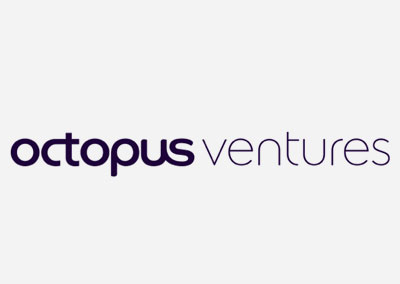
Programme
Partech 2019


Finance and Risk Capital
Impact for scaleups

14
Companies backed

39%
Follow-on investments

36%
Investments outside of London

4
Growth-stage investments
Key sectors














Partech makes equity investments at seed, venture and growth stage, operating through five funds, with investments ranging between €200,000 to €50m.
With offices in San Francisco, Paris, Berlin and Dakar, Partech’s investment focus is on technology and digital businesses in the US and Europe but with a growing presence in Asia and Africa. The firm has backed UK scaleups such as Made.com, Brandwatch and Push Doctor. The average size of its investment round into UK companies since 2013 is £13.6m.
In support of its portfolio companies, Partech provides coaching on strategy, operations, executive hiring, board structure, as well as preparation for M&A and build-ups. The firm has launched Partech Shaker, a nine-story building in central Paris designed for tech startups and scaleups.
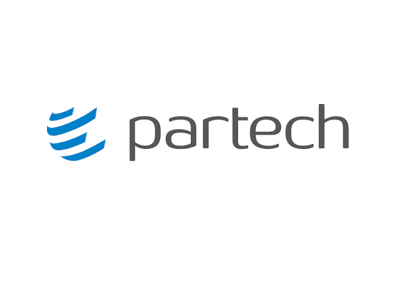
Programme
Santander Growth Capital Breakthrough

Finance and Risk Capital
Impact for scaleups

18
Companies backed

15%
Follow-on investments

78%
Investment outside London

9
Growth-stage investments
Key sectors














Santander Breakthrough Growth Capital provides growth-stage capital through a mezzanine loan offer, typically between £500,000 to £5m, which can work alongside additional senior debt facilities. The funding targets companies that are growing at scaleup rates. The average size of its investment round into UK companies since 2013 is £3.98m. Current scaleups in its portfolio include Luminet, Aimes Grid Services and Aspinal of London.
A range of additional support is offered by the Breakthrough programme. This includes expertise to companies that are expanding internationally, providing commercial contacts and market knowledge to companies looking to export or open offices abroad.
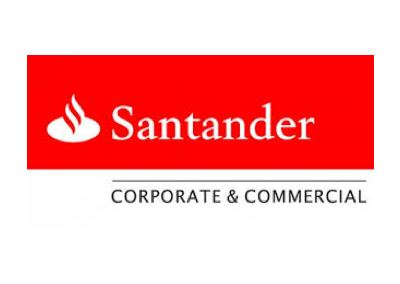
Programme
Scottish Equity Partners [Annual Review 2020]


Finance and Risk Capital
Impact for scaleups

19
Companies backed

42%
Follow-on investments

68%
Investments outside of London

8
Growth-stage investments
Scottish Equity Partners (SEP) is a late stage venture and growth equity investor focused on technology and technology-enabled companies based in the UK and Ireland, and selectively in other parts of Europe. It has offices in Edinburgh, Glasgow and London.
The firm invests up to £25m and also funds larger deals, co-investing with others, including its own fund investors. Between the period of January 2013 to June 2020, the firm has participated in 33 fundraisings for 19 scaling businesses with an average fundraising size of £5.2m.
SEP plays an active and supportive role in the growth and development of its portfolio companies. It has a strong track record in supporting its portfolio companies with talent acquisition, building leadership capability, and assisting international growth – international sales account for 64% of the current portfolio’s combined revenues.
The firm has previously backed – and exited from – notable scaleups such as Skyscanner and Cambridge Silicon Radio. Scaleups in its current portfolio include Dotmatics, Matchesfashion, Sport Pursuit and Totally Money.
The firm, which is a signatory to the Women in Finance Charter, has a 38% female representation in its senior management positions. It provides financial support to the Strathclyde Entrepreneurs Fund, which provides early stage investment in companies and ventures run by University of Strathclyde staff, students and alumni.
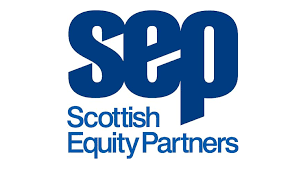
CONTENTS

Introduction 2020

Chapter 1 2020
The Scaleup business landscape

Chapter 2 2020
Leading Programmes Breaking Down the Barriers for Scaleups

Chapter 3 2020
The local scaleup ecosystem

Chapter 4 2020
Shaping policy to foster UK scaleups: Breaking down barriers

Chapter 5 2020
Looking Forward

Scaleup Stories 2020

Annexes 2020

 Previous
Previous

Share